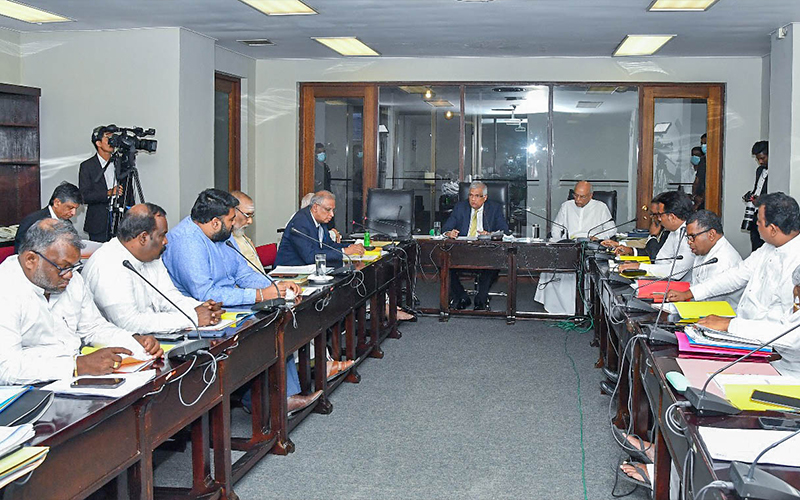Wickremesinghe visiting India: disagreements over fisheries among open issues
Fishermen in the northern regions are being harmed by the trawling activities of Indian fishing boats, but for years a solution has been hard to find. On the eve of a trip during which he will see Indian Prime Minister Modi, the president met with Tamil leaders, bringing reassurances but no particular progress in plans for reconciliation and autonomy.
Colombo (AsiaNews) - Sri Lankan President Ranil Wickremesinghe has visited the northern regions in recent days and held talks with local parliamentarians in an attempt to address several unresolved issues since the civil war between the government and the Tamil population and to find a solution to the trawling practised by Indian fishing boats.
Tamil fishermen in northern Sri Lanka have long been adversely affected by Indian activities, which reduce fish stocks and cause nets to be damaged or even equipment to break. Trawling in Sri Lanka has been banned since 2018 and 74 Indian fishermen and 12 fishing boats have been taken into custody this year.
Tomorrow, the head of government will pay an official visit to India at the invitation of Prime Minister Narendra Modi on the occasion of the 75th anniversary of the establishment of diplomatic relations between the two countries, for which the Tamil people hope that a lasting solution will be reached regarding illegal fishing so that the livelihoods of 50,000 people in the region who depend on fishing activities will be ensured.
On 15 July, a group of Indian fishing boats had entered Sri Lankan territorial waters off the island of Delft and the Navy had managed to arrest 15 people, who were then taken to the port of Kankesanthurai and presented to the Kayts Court, which adjourned the trial until 21 July.
Nirmalan Aruliah (54), Annalingam Pillmarai (63) and Nagarajah Rubatheesan (59) from Vadmarachchi, near Jaffna, explained to AsiaNews that "the Tamil government and politicians have failed to protect the interests and livelihoods of our community, which is under pressure from trawling and illegal fishing activities conducted by Indian fishermen. Currently, we are not getting a decent catch as in the past and this has affected our livelihood."
According to senior naval sources, "when a fleet of Indian mechanised trawlers, made of iron rods and heavy metal equipment, enters Sri Lankan territorial waters, the naval vessels have to take extraordinary measures to remove them. The first thing we do when these fishermen enter our waters is to warn them to leave. If they resist our warnings, we arrest them. We always do our best to handle the matter in a humanitarian manner. There are reports of Indian fishermen claiming that the Navy damaged their fishing boats and attacked them, but these allegations are baseless. In October 2021, an Indian fisherman from Puthukottai in Tamil Nadu drowned after his fishing boat capsized."
The Jaffna District Fishermen's Co-operative Association further explained that the Minister of Fisheries and Aquatic Resources, Douglas Devananda, has failed to resolve the conflict amicably, but has instead worsened the situation by issuing directives such as the distribution of seized Indian fishing boats to local fishermen and encouraging mistreatment.
During his visit to the northern and eastern provinces, Wickremasinghe spoke of various projects, ranging from the implementation of the 13th Amendment to the Constitution for a path to regional autonomy, to the development of renewable energy and the promotion of tourism. The head of government emphasised that the devolution of powers to local councils can only take place with the agreement of all parties and a two-thirds majority in Parliament.
On the national reconciliation process, the president also did not present any particular progress: he said that the draft National Reconciliation Action Plan drafted by the Office of National Unity and Reconciliation had been sent to the Attorney General for constitutional review and would soon be submitted to the executive, while he was reluctant to involve foreign judges in the process of ascertaining the truth about the facts of the civil war, but told Tamil leaders that he would consider obtaining reports from foreign observers, following existing systems in South and East Asian countries.
(Melani Manel Perera contributed to this article)
12/02/2016 15:14
28/11/2022 19:49
11/08/2022 18:42







.png)










